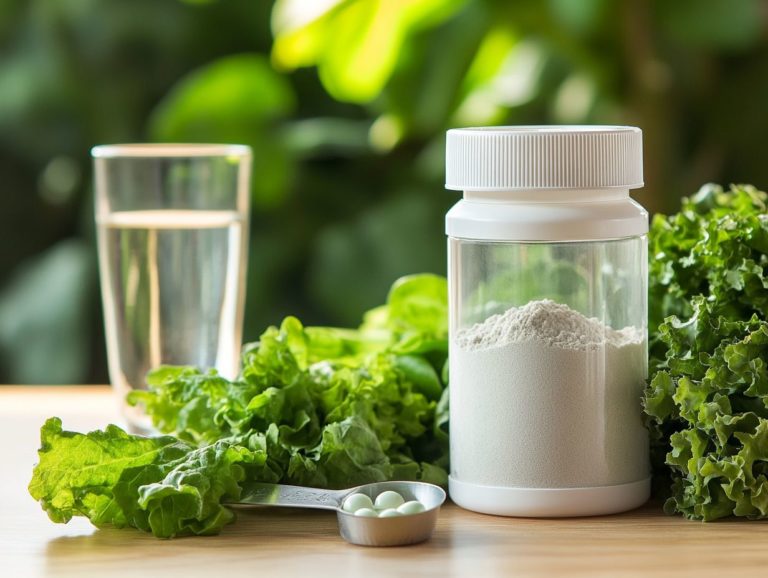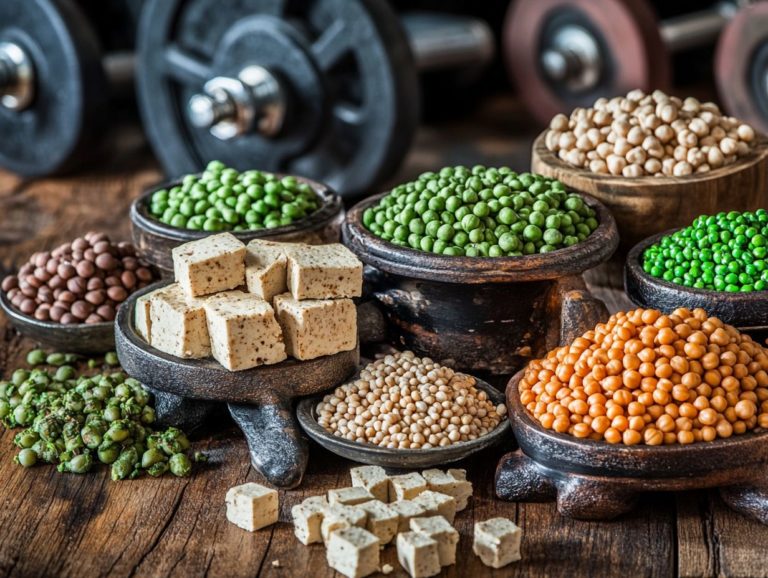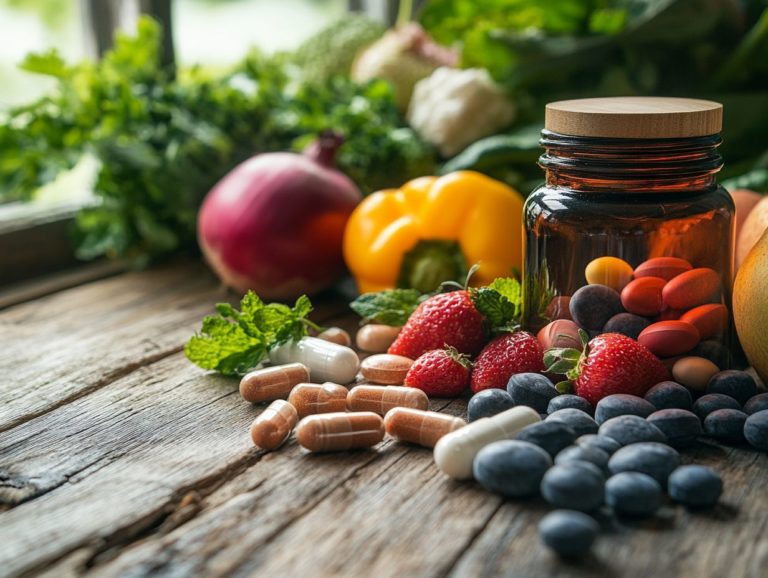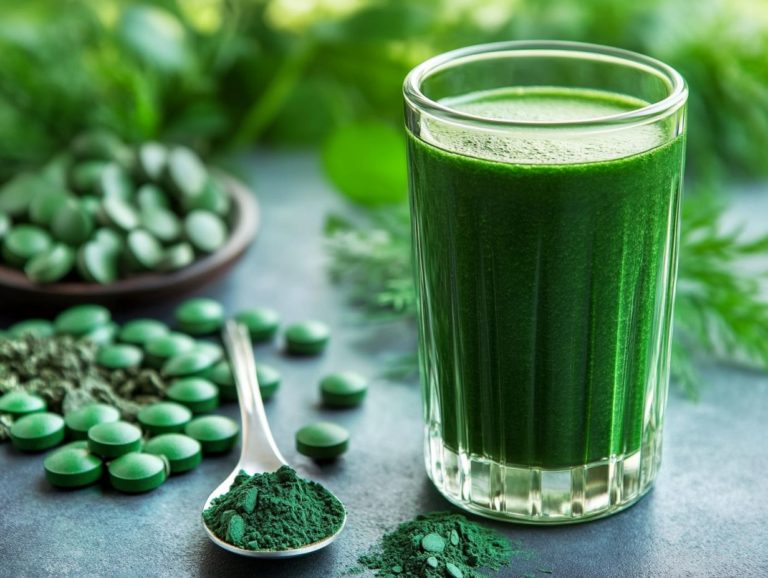Are You Getting Enough Vitamin B12?
Are you sure you’re getting enough Vitamin B12? This essential nutrient is fundamental to maintaining your overall health, impacting everything from your energy levels to your neurological function.
Dive into the world of Vitamin B12 and uncover its vital roles within your body. Learn to recognize the signs of deficiency, grasp the common causes, and discover effective methods for diagnosis and treatment.
You’ll find valuable tips on preventing deficiency through a balanced diet and strategic supplementation. Continue reading to ensure you’re supporting your health with sufficient Vitamin B12.
Contents
Key Takeaways:
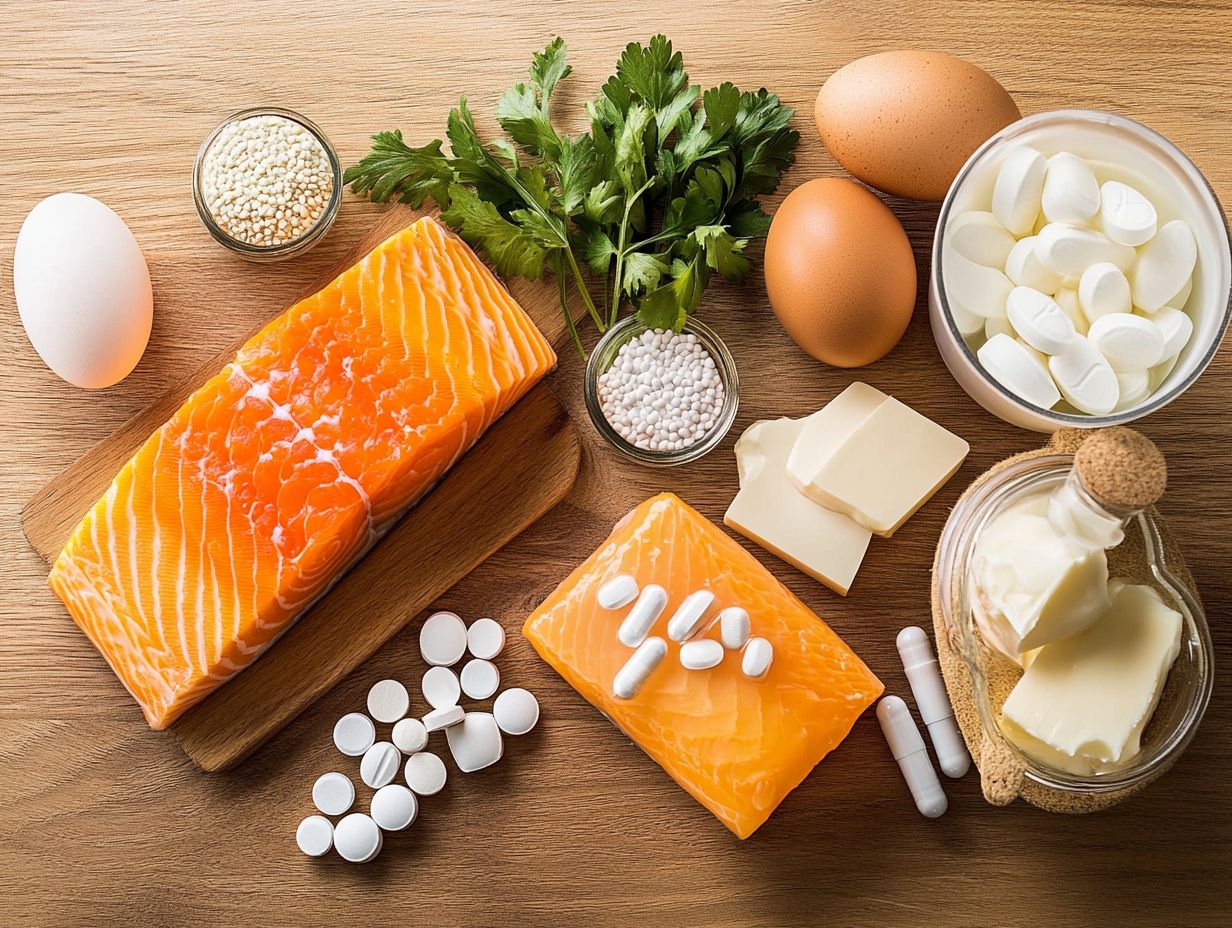
Vitamin B12 is vital for red blood cell production and nerve function. Symptoms of Vitamin B12 deficiency include fatigue, weakness, and neurological issues like tingling and numbness. To prevent deficiency, consume a balanced diet rich in Vitamin B12 or consider supplementation if needed.
What is Vitamin B12?
Vitamin B12, also known as cobalamin or methylcobalamin, is a vital water-soluble vitamin that significantly influences various bodily functions. It is essential for forming red blood cells, synthesizing DNA, and maintaining nerve function.
A deficiency in Vitamin B12 can pose serious health risks, leading to neurological and psychological symptoms that affect your energy levels and overall well-being.
Overview and Functions
Vitamin B12 is essential for producing red blood cells, synthesizing DNA, and maintaining neurological function. It is a vital nutrient for your overall health.
This crucial vitamin helps form red blood cells, which are fundamental for transporting oxygen throughout your body, thereby helping you avoid anemia. It also supports energy metabolism, transforming carbohydrates and fats into the fuel you need for vitality and stamina.
Vitamin B12 supports optimal neurological health by aiding in synthesizing myelin, the protective sheath around your nerves. A deficiency can lead to fatigue, cognitive decline, and mood disorders, highlighting its importance in your daily nutrition.
Signs of Vitamin B12 Deficiency
Vitamin B12 deficiency can manifest in various ways, including neurological and psychological disturbances.
Physical symptoms may include muscle weakness and cognitive difficulties, significantly impacting your quality of life.
Common Symptoms to Look Out For
Symptoms of Vitamin B12 deficiency include fatigue, muscle weakness, and cognitive issues that can disrupt your daily life.
You may experience overwhelming tiredness, making even simple tasks feel challenging. Muscle weakness can make everyday activities more difficult.
Cognitive problems may appear as memory lapses, concentration difficulties, or mood swings, which can lead to feelings of depression and irritability. Neurological symptoms might include numbness or tingling in your hands and feet, affecting your mobility and coordination.
Spotting these signs early is vital! Acting quickly can restore your health and prevent serious issues.
Causes of Vitamin B12 Deficiency
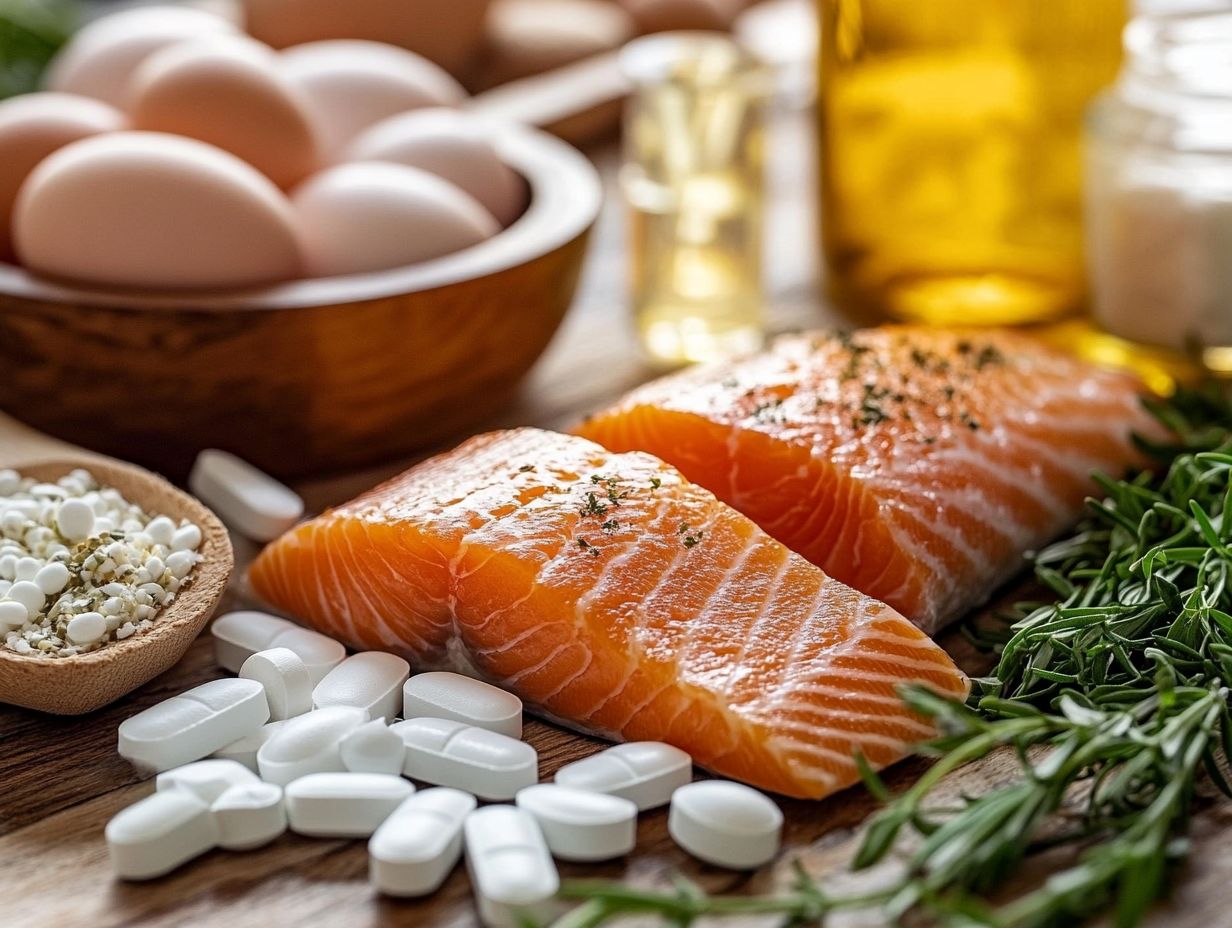
Vitamin B12 deficiency can stem from various factors, including dietary influences, specific health conditions, or issues related to food absorption.
Conditions like pernicious anemia and gastrointestinal disorders, such as Crohn’s disease and celiac disease, can contribute to this deficiency.
If you suspect you may be deficient in Vitamin B12, consult with a healthcare provider. Taking action for your health is important!
Dietary Factors and Health Conditions
Dietary choices, such as following a strict vegan diet that avoids all animal products, can significantly heighten your risk of Vitamin B12 deficiency. Health conditions like pernicious anemia and various gastrointestinal disorders can complicate absorption.
This is concerning since Vitamin B12 plays a crucial role in nerve function and the production of red blood cells. If you’re on a plant-based diet, it s essential to be mindful of your sources of this vital nutrient, as you may not be getting enough unless you intentionally include fortified foods or supplements.
Health issues affecting the gastrointestinal tract, like Crohn’s disease or celiac disease, can hinder your body s ability to absorb B12, increasing the risk. This deficiency can cause serious neurological problems and anemia. It’s important to stay aware of your diet and health to maintain optimal Vitamin B12 levels.
Diagnosing Vitamin B12 Deficiency
Diagnosing a Vitamin B12 deficiency usually requires a consultation with a healthcare provider. They may suggest blood tests to measure your Vitamin B12 levels and assess your red blood cell count.
Tests and Assessments
Blood tests are crucial for assessing your Vitamin B12 levels, providing valuable insights into your overall health and red blood cell count. These tests typically measure the levels of Vitamin B12 in your blood and the presence of methylmalonic acid (MMA) or homocysteine, which can signal potential deficiencies.
When healthcare providers interpret these results, they seek a balance between the measurements and any signs that might indicate deficiency or underlying health concerns. Regular health check-ups are crucial! They catch deficiencies early and keep you healthy.
By monitoring these metrics, you can take proactive steps to ensure you maintain optimal wellness.
Treatment for Vitamin B12 Deficiency
Treatment for Vitamin B12 deficiency typically includes a tailored approach that may involve dietary modifications, supplementation, and, in certain cases, Vitamin B12 injections. The specific strategy will depend on the severity of the deficiency and its underlying causes.
Supplementation and Dietary Changes
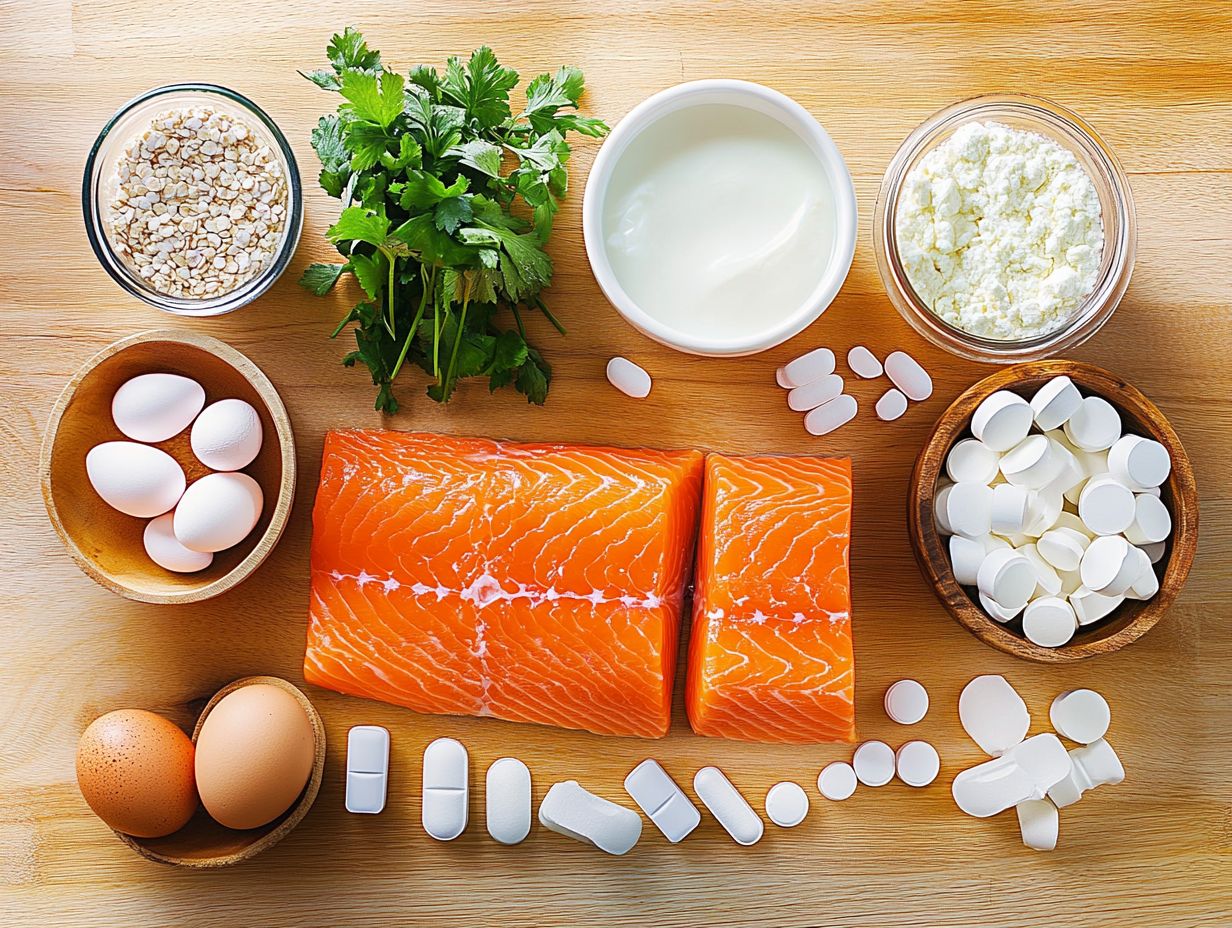
Incorporating Vitamin B12 supplementation, along with dietary supplements and foods fortified with Vitamin B12 like nutritional yeast can be an effective strategy to combat deficiency. You might want to consider adding fortified cereals, dairy products, and eggs to your meals, as they can significantly boost your Vitamin B12 intake.
If you’re vegan or vegetarian, high-quality B12 supplements are a must! These supplements often come in various forms, including tablets, sublinguals, or even injections, with recommended doses typically ranging from 250 to 500 micrograms, tailored to your individual needs.
Regular monitoring and consultation with healthcare providers can help you craft an approach that ensures optimal health and prevents potential complications related to this deficiency.
Preventing Vitamin B12 Deficiency
Preventing Vitamin B12 deficiency is essential for maintaining your overall health. You can achieve this by adhering to the recommended dietary intake and incorporating a diverse range of Vitamin B12 sources, such as animal products and fortified foods.
Prioritizing these nutrient-rich options can significantly enhance your well-being. Take charge of your health today! Check your Vitamin B12 levels and ensure you’re getting enough!
Recommended Intake and Sources
The suggested daily amount of Vitamin B12 varies with age and life stage. Typically, a balanced diet with meat, dairy, and fortified foods is recommended.
Infants require about 0.4 micrograms per day. This increases to 2.4 micrograms for adults. Pregnant women should aim for 2.6 micrograms, while breastfeeding women need 2.8 micrograms to support their babies.
If you follow a vegetarian or vegan diet, it can be tough to get enough Vitamin B12 from food alone. Fortified cereals and supplements become essential for your health.
Understanding your unique needs is key to thriving! Dietary restrictions or health conditions can significantly impact how your body absorbs Vitamin B12.
Frequently Asked Questions
1. Are You Getting Enough Vitamin B12?
Don’t underestimate Vitamin B12 it’s crucial for your wellbeing. It helps maintain healthy nerve cells, produces DNA, and supports red blood cell formation.
2. How much Vitamin B12 do I need?
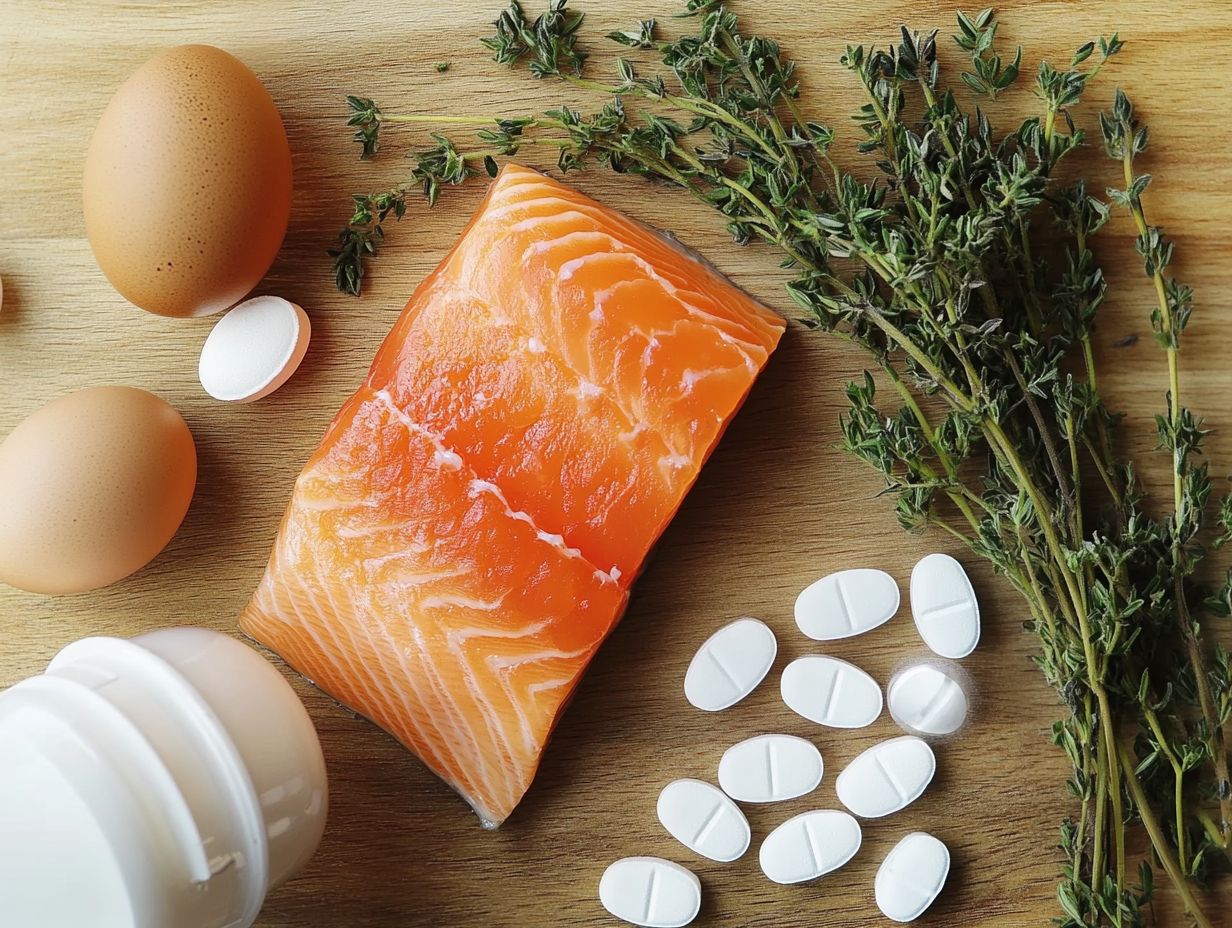
The recommended daily intake for adults is 2.4 micrograms. Pregnant and breastfeeding women may need slightly more.
3. What are some signs of Vitamin B12 deficiency?
Common symptoms include fatigue, weakness, and tingling or numbness in hands and feet. Severe deficiency can lead to anemia and nervous system damage.
4. What foods are high in Vitamin B12?
Animal products like meat, fish, eggs, and dairy are excellent sources of Vitamin B12. Some fortified cereals and plant-based milks also provide it.
5. Can I take Vitamin B12 supplements instead of getting it from food?
Yes! Supplements come in various forms like pills, sublingual tablets, and injections. However, getting nutrients from a balanced diet is always the best option.
6. Who is at risk for Vitamin B12 deficiency?
Vegans, vegetarians, and older adults are more likely to lack Vitamin B12 due to limited dietary sources. Those with digestive disorders or who have had weight loss surgery may also struggle with absorption.


